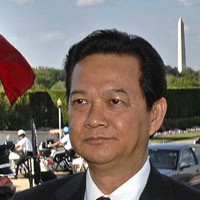A Vietnamese court has convicted 14 bloggers and activists on charges of plotting to overthrow the government. In an email interview, Vietnam expert Adam Fforde, a professor at Victoria University’s Center for Strategic Economic Studies and honorary principal fellow at University of Melbourne’s Asia Institute, discussed the significance of the convictions and how they fit into the broader state of civil liberties in Vietnam.
WPR: What is the overall state of civil liberties in Vietnam?
Adam Fforde: The state of civil liberties in Vietnam has two very different aspects. On the one hand, since the de-Stalinization of the late-1980s, Vietnamese can basically think what they like, travel abroad, more or less say what they like privately and have pretty good access to all sorts of literature and materials showing aspects of the country’s history that do not portray the ruling Vietnamese Communist Party in a good light. They can and do organize informally in many creative ways. On the other hand, the security apparatus, a complex bureaucracy with roots going back to the Cold War, has a list of so-called anti-regime proscribed activities that can lead to arrest, prosecution and punishment. So if you are Vietnamese and stay well away from the security apparatus’s radar screen, life feels and is relatively free. But the list is meant to include overt political action challenging the regime.

